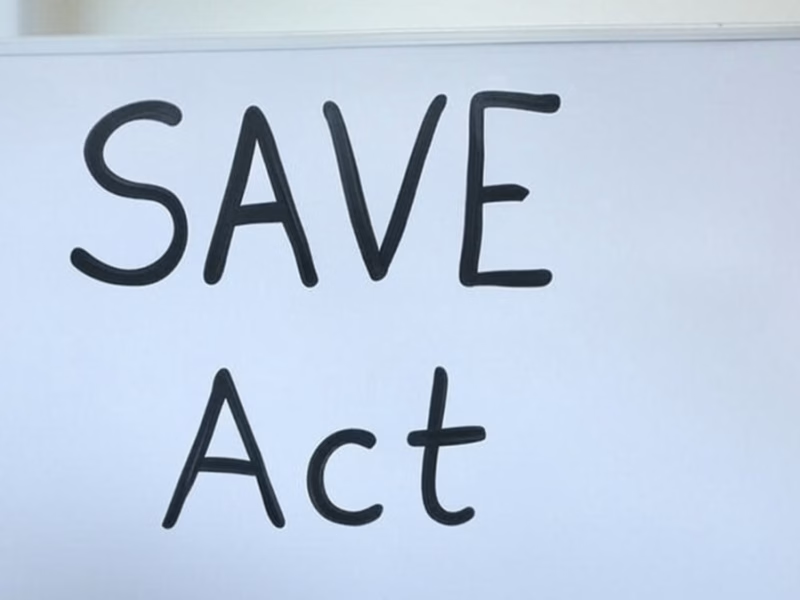The U.S. House of Representatives recently passed the SAVE Act, a bill that requires individuals to provide proof of U.S. citizenship when registering to vote. Championed by Republicans, the measure is designed to block noncitizen participation in elections. However, voting rights advocates warn it could strip voting rights from millions of eligible Americans, igniting a fierce national debate over election access and integrity.
What is the SAVE Act?
The Safeguard American Voter Eligibility (SAVE) Act was introduced to tighten regulations around voter eligibility, specifically targeting concerns about noncitizen voting. Proponents argue that it’s a necessary step to protect the democratic process. Although federal law already criminalizes noncitizen voting—with significant penalties—instances remain exceedingly rare and are typically accidental.
How the SAVE Act Would Change Voter Registration
If the SAVE Act becomes law, anyone applying to register to vote—or updating their registration due to a name change or relocation—must provide proof of citizenship. Importantly, current registered voters would not be affected unless they modify their registration details.
Proof of Citizenship: What’s Required?
The legislation outlines several acceptable documents for verifying citizenship status. These include:
- A REAL ID-compliant driver’s license
- A valid U.S. passport
- A military ID card
Alternatively, individuals could present a government-issued photo ID along with a birth certificate. However, since most driver’s licenses do not display citizenship status, compliance could be tricky.
Barriers to Accessing Required Documents
Critics argue that many Americans lack easy access to necessary identification documents. Birth certificates and passports aren’t universally available, and individuals—particularly women who have changed their names after marriage—could face additional hurdles. Although the SAVE Act allows states to accept supplemental documents, opponents say it doesn’t clearly define acceptable alternatives.
How Proof Must Be Submitted
Under the SAVE Act, applicants would need to submit their citizenship documents in person at local election offices. This could create significant difficulties for rural residents or those with limited transportation. While the bill calls for accommodations for people with disabilities, critics note that it provides little detail about how these measures will be implemented.
Political Debate: Election Security vs. Voter Access
Republicans emphasize that even a small amount of noncitizen voting undermines public trust in elections. Democrats argue that the issue is already addressed under current laws, and that the SAVE Act could disenfranchise lawful voters instead of solving a widespread problem.
How Common is Noncitizen Voting?
Recent data highlights how rare noncitizen voting actually is. For example, a review in Michigan after the 2024 election found only 15 cases of suspected noncitizen voting out of more than 5.7 million ballots cast. Critics of the SAVE Act argue that its strict measures could create bigger problems than the minor issues it seeks to fix.












